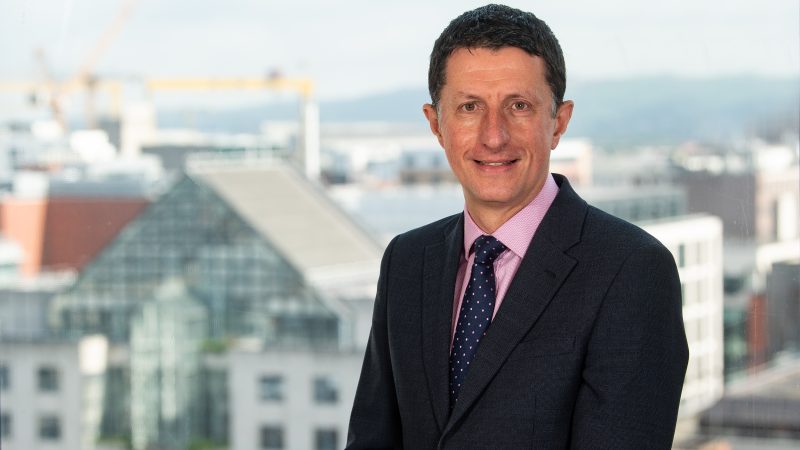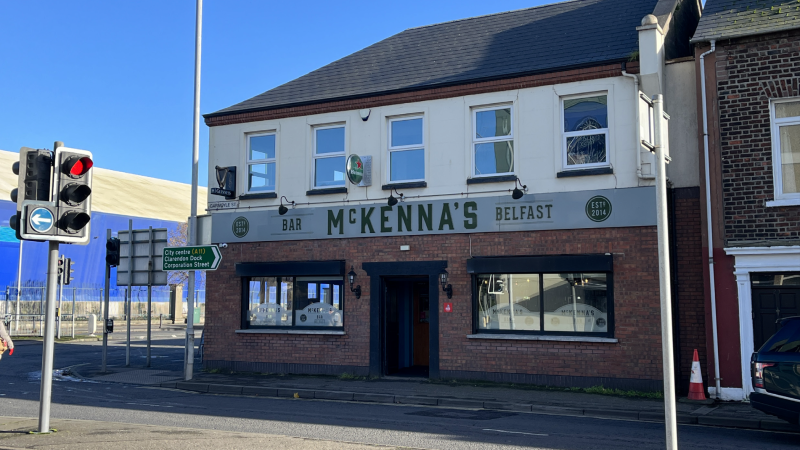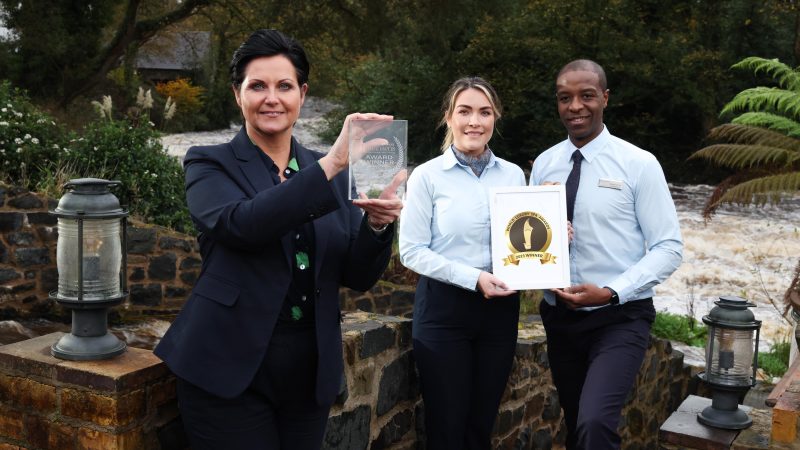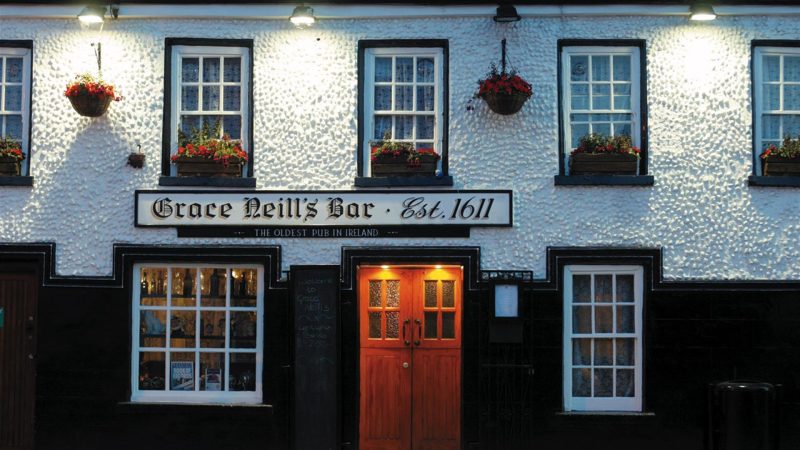Baptism of fire
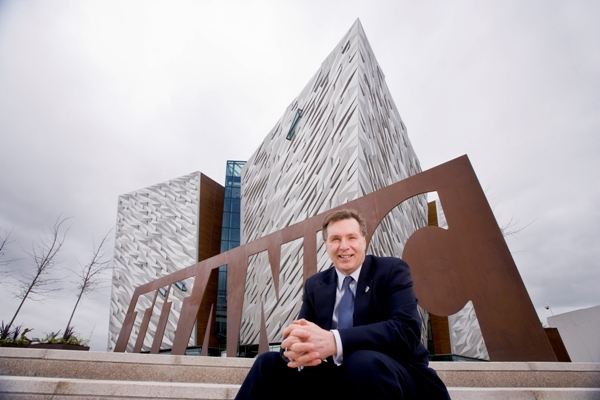
Alan Clarke will shortly retire from his post as chief executive of the Northern Ireland Tourist Board. In this interview, he tells Russell Campbell that he believes Northern Ireland is still struggling to be heard within the context of an all-Ireland promotional brand.
Alan Clarke, the outgoing chief executive of the Northern Ireland Tourist Board (NITB) has described his arrival at the organisation in September 2001 as “a baptism of fire”.
Mr. Clarke, who announced in May that he was to stand down from his role, made the comment during a recent interview with LCN in which he also said that he felt the whole prospect of retiring from the NITB had left him feeling “slightly surreal”.
Prior to his current role with the board, Mr. Clarke – a graduate of the University of Ulster and the Scottish Hotel School – had been chief executive of the Aberdeen and Grampian Tourist Board. He also spent seven years as director of marketing for the Edinburgh and Lothians Tourist Board.
Part of his early career also saw him work for a period with the Belfast agency and he sometimes refers to his 2001 return as chief executive as “the second coming”:
“When I came back, I realised that there was an opportunity to grow tourism here in a more peaceful Northern Ireland and I also felt that it was going to be a challenge,” Mr. Clarke told LCN. “I had been aware from a distance of the structural changes involving Tourism Ireland and the introduction of Invest NI in 2001, but the extent of the challenge was difficult to fully anticipate .”
The nature of that challenge was made clear to Mr. Clark, however, just a few months after his arrival when a Public Accounts Committee (PAC) hearing got underway into a series of damaging allegations concerning various elements of the NITB’s financial affairs.
“At that time, no-one had thought about the role that the NITB was going to play with the new Tourism Ireland or Invest NI and I wanted to set-up a strategy and a vision for the future and get people to buy into it,” recalled Mr. Clarke. “But the PAC took us out to be honest and it wasn’t until 2003 that we were able to settle on a way forward, then we had to go about securing the money and the political will to make that happen.”
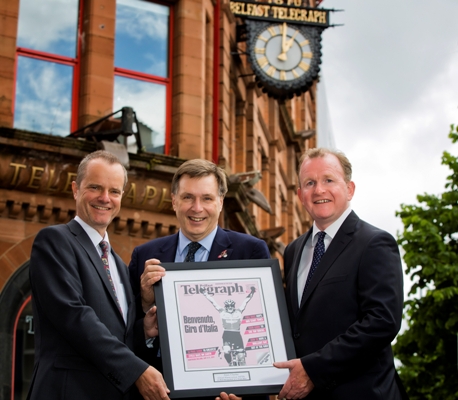
During his interview with LCN, Alan Clarke also addressed the issue of Northern Ireland’s role within the all-Ireland marketing model and suggested that current strategies may not be maximising Northern Ireland’s potential.
At present, Tourism Ireland – which promotes the island of Ireland in GB and overseas – reports to the North-South Ministerial Council. Asked about alternative models, Mr. Clarke said that he would prefer to see stronger integration between Failte Ireland and the NITB, with the Tourism Ireland board made up from both. He believes that this would enable the organisations to have a stronger link between the product and markets and for Tourism Ireland to be seen as a jointly owned north-south marketing company as envisaged.
“It’s not up to me who delivers all-island marketing ,” he added. “Tourism Ireland will do it for the island, north and south. Where Northern Ireland struggles is in getting a voice. In 2001, the big issue was how to get stand-out for Northern Ireland within the Ireland brand and that’s still the case today.
“Research shows us that the view of the GB public is that Northern Ireland is still very different from Dublin and the rest of Ireland.”
And he added:
“All of us have invested in this and I think that Tourism Ireland now needs to move things to a point where diversity within Ireland is seen as a strength rather than a weakness. I’m not saying that the Ireland brand is wrong, but sometimes politics can dominate and I feel that the next stage has to be to allow stand-out for the Northern Ireland brand within the Ireland brand for closer-to-home markets and those such as Canada, where Northern Ireland has a close affinity.”
Mr. Clarke said that he believed that if Northern Ireland were permitted to stand-out more distinctly within the Ireland brand, there would be benefits for the GB market – selling Ireland as an island worked well in countries such as Australia and North America, he added, but greater flexibility for Tourism Ireland in GB could yield better results:
“We’ve invested heavily in our own product and we should be able to stand-out,” he remarked. “Research shows the need for greater flexibility in GB and we have to be allowed to breathe and compete.”
Turning point
Mr. Clarke said that he felt the turning point in the fortunes of local tourism came when concrete was first poured on the so-called signature projects, among them Titanic Belfast and the Giant’s Causeway Visitors’ Centre.
“We’d been working on these projects since 2003, but construction only began in 2008,” he recalled. “Five years is a long time…and I can understand that people really need to see that something is happening so the tipping point came when we secured the money for these projects, especially Titanic, that was the big vote of confidence from the Executive in tourism and it all became reality after that.
“The next turning point came in 2012. The signature projects were all pretty well in place and we were moving much more into ‘business delivery’ mode. People were beginning to see real benefits, visitors were starting to come to Titanic from outside and what we had been talking about for eight or nine years was finally becoming reality. That was a memorable time for me personally and a turning point for tourism here.”
While Mr. Clarke attributes tourism’s recent successes to a series of factors, among them the vision of the Board itself and the return of a local administration that was happy to finance the new signature projects, he also praises the efforts of those who work on the ground in tourism:
“They look after the visitors, not us,” he said. “We have to support them and help them to develop solutions and this has been a good partnership over my time here.”
As for sentiment on the ground, Mr. Clarke believes that opinion is improving. He conceded that on occasion, things happen in Northern Ireland that portray the country in a poor light abroad:
“This does reinforce people’s stereotypes,” he added. “These images of people out on the streets will be in their minds about Northern Ireland and they could very well be the deciding factor when it comes to booking a short break. But our offering is strong now and we’re starting to get our message out there in a much more effective way.
“Our aim now has to be to re-position Northern Ireland in a wider context and everyone will have a role to play in that because tourism is not just the responsibility of the Northern Ireland Tourist Board, it is everyone’s business.”
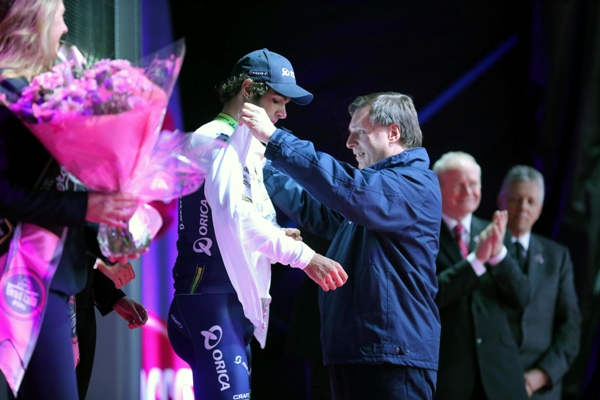
Asked to pick out the best bits of his career with the Tourist Board, Mr. Clarke – predictably perhaps – selects the opening of Titanic Belfast. When the Assembly voted through £40m of funding for the project in November 2008: “there was great elation”, he recalls.
“The signature projects captured political imagination and we had to be able to do that to get the money. I wouldn’t have thought in my wildest dreams that Titanic would have been as successful as it’s been.
“The whole of NI2012 was a tremendous success and for me, the Giro was just the best possible way to go out,” he added. “More than anything else, the way the public bought into it was the most memorable part of it all.”
There were low points too, of course. He picked out the PAC inquiry and the damage that it wrought to Northern Ireland’s reputation:
“A public thrashing like that doesn’t do anyone any good, especially NI plc…”
But he added:
“I have had so many nice letters from people telling me “well done”. But you know you’re not long gone until people forget you. That’s the same for everyone, what’s important now is that people focus on the present day and carry on taking tourism forward.
“One of the nice things about working here has been the people that I have worked with. This is a people industry and I have worked in it all my life. My relationships are one of the things that I value most and it’s been a real privilege to work in such a great industry.
“I don’t really have a plan for what to do next. Maybe I’ll go to the gym more often, do a little more walking and spend more time with the family. I think I’ll take a few months out and reassess what I would like to do.”
And asked which job he might have done, had he not pursued a career in tourism, Mr. Clarke acknowledged with a smile:
“I’ve been in a few fights along the way, perhaps I should have been a lawyer…”



